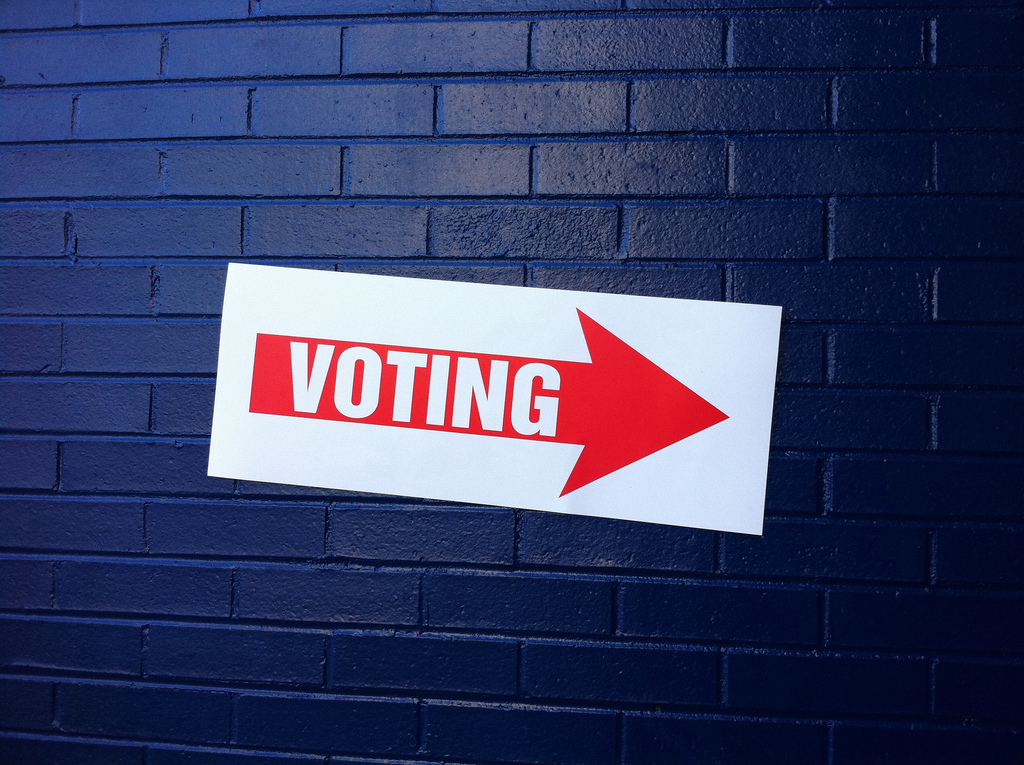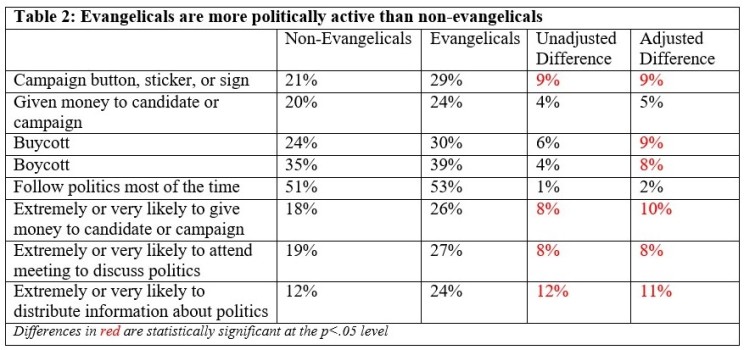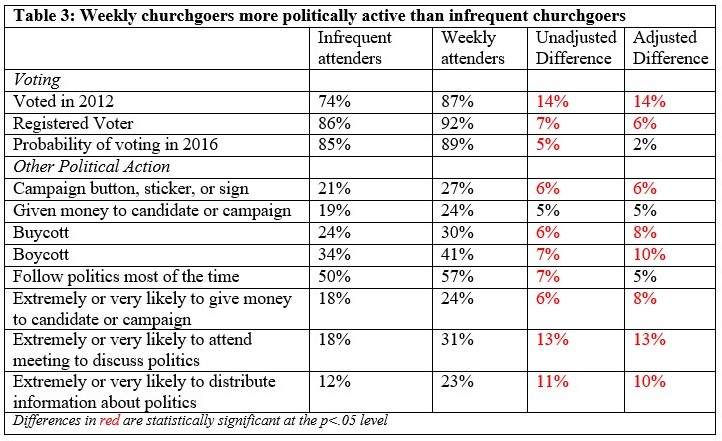

Do evangelicals care about and participate in politics? While research firms, Christian leaders and presidential candidates portray American evangelicals as politically disengaged citizens who too often stay home instead of voting, claims of evangelicals’ political apathy are overstated.
Using data from the nationally representative survey 2016 National Election Study, I find self-identified evangelicals and weekly churchgoers vote more and are more politically active than non-evangelicals and infrequent churchgoers. (For details on the survey and the analyses below, please refer to the accompanying online appendix.)
These findings challenge the (mis)conception that committed Christians are insular, politically disinterested, and less likely to participate in the democratic process. While there are theological arguments over how to best participate in the political system, the empirical evidence reveals Americans who had a born-again experience and who attend church more frequently are more politically active across many types of political behavior.
First I compare respondents’ self-report of voting behavior. Compared to non-evangelicals, evangelicals report higher rates of voting in the 2012 presidential election (87% versus 75%). To check if this statistically significant difference of 12% is robust, I estimate adjusted differences that factor for respondents’ demographic profiles (age, gender, race, education, marital status, party identification, and political ideology). This is strong evidence that evangelicals were more likely than non-evangelicals to vote in the 2012 election.
Evangelicals are also more likely to be registered voters (92% versus 86%) and are more likely to vote (90% vs. 84%) in the 2016 election. While the unadjusted differences across these two are statistically significant, the differences are not statistically significant when adjusting for respondents’ demographic profile.
Beyond voting, evangelicals are also more politically engaged and active than non-evangelicals. In the last 12 months, evangelicals were more likely than non-evangelicals to have worn a campaign button or sticker, or put up a yard sign, buycotted or bought a product or service because of the social or political values of the company, and boycotted or declined to buy a product or service because of the social or political values of the company. Evangelicals also report they are more likely to give money to a candidate or campaign, attend a meeting to discuss politics, and distribution information about politics in the future.
To check these results, I compare the political behavior of respondents who attend church weekly with those who attend church less than weekly. The results, summarized in Table 3, reveal that weekly churchgoers vote more and are more politically active than more infrequent churchgoers.
Every election season, well-meaning Christians warn about the dire consequences when evangelicals and Christians choose not to participate in the political process. While it is important to encourage engagement and participation in the political process, let us avoid sensationalist if not apocalyptic rhetoric to scare Christians to vote and be politically active when the empirical evidence reveals evangelicals and regular churchgoers already vote more and are more politically active.
Instead, let us ask God for wisdom so we can best pursue His justice and Shalom in our politics and social engagement. And let us pray that our sovereign God would use our political systems and representatives, however sinful and flawed as we are, to further His Kingdom here on earth.
Joshua Su-Ya Wu is a husband, father, pastor’s kid, and social scientist seeking to faithfully reflect Christ in all aspects of his life. He has a doctorate in Political Science from The Ohio State University, works in analytics and data science, and writes about data analytics at Reasonable Research and the intersection of faith and culture at Stuff I Didn’t Learn in Church. He currently lives in Rochester New York with his wife and two kids, and can be reached on Linkedin or on Facebook




Leave a Reply